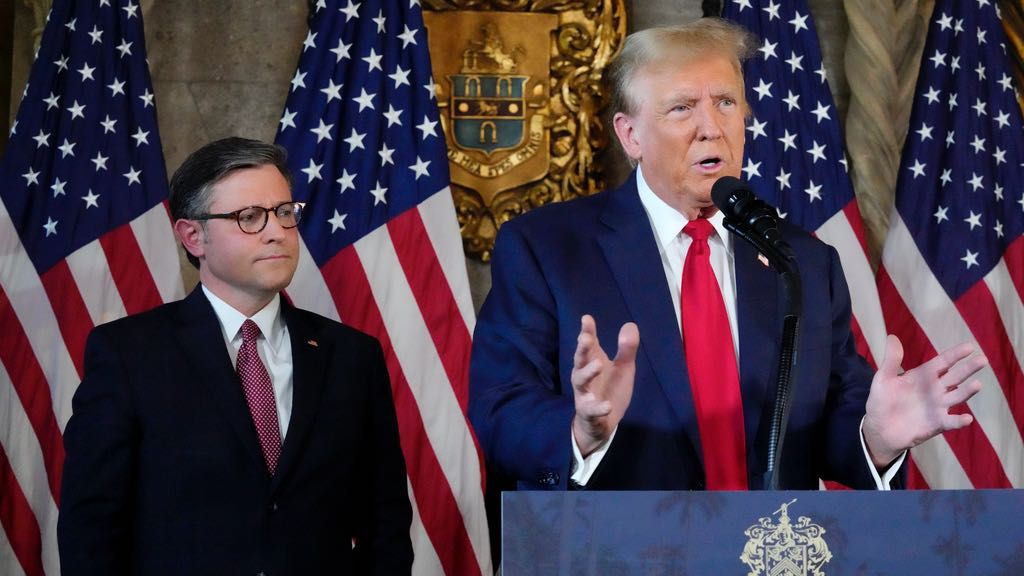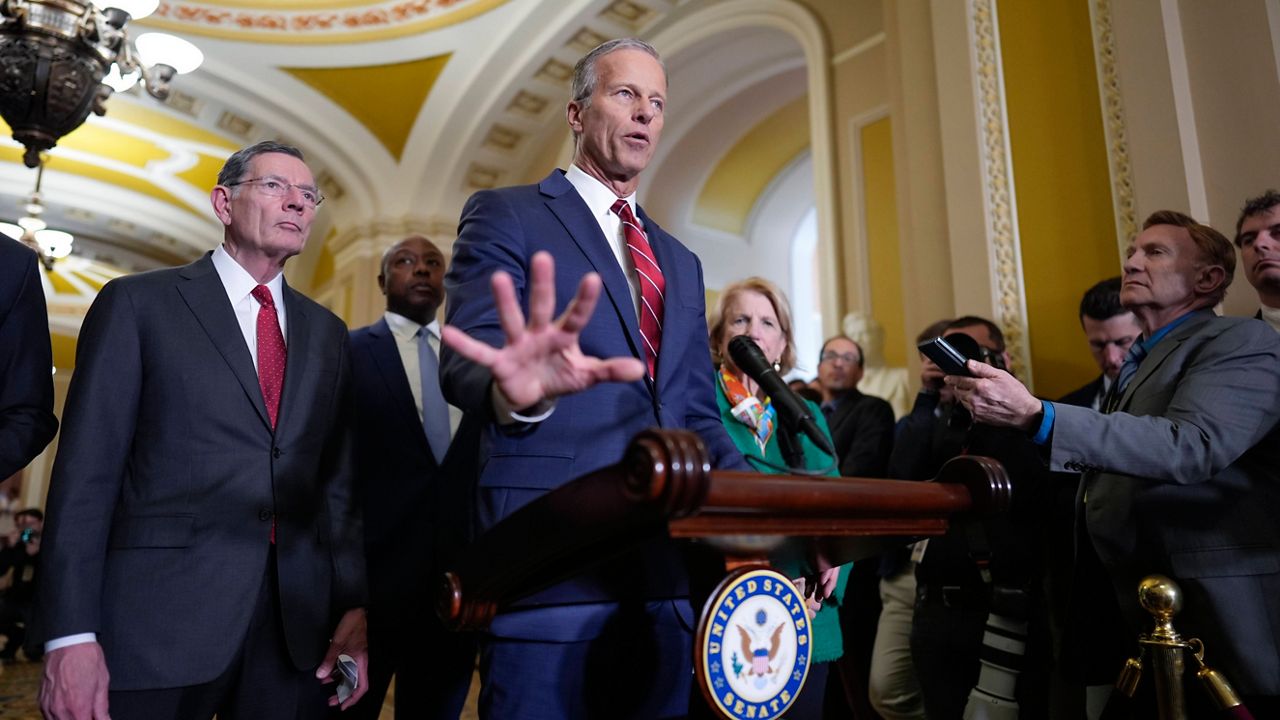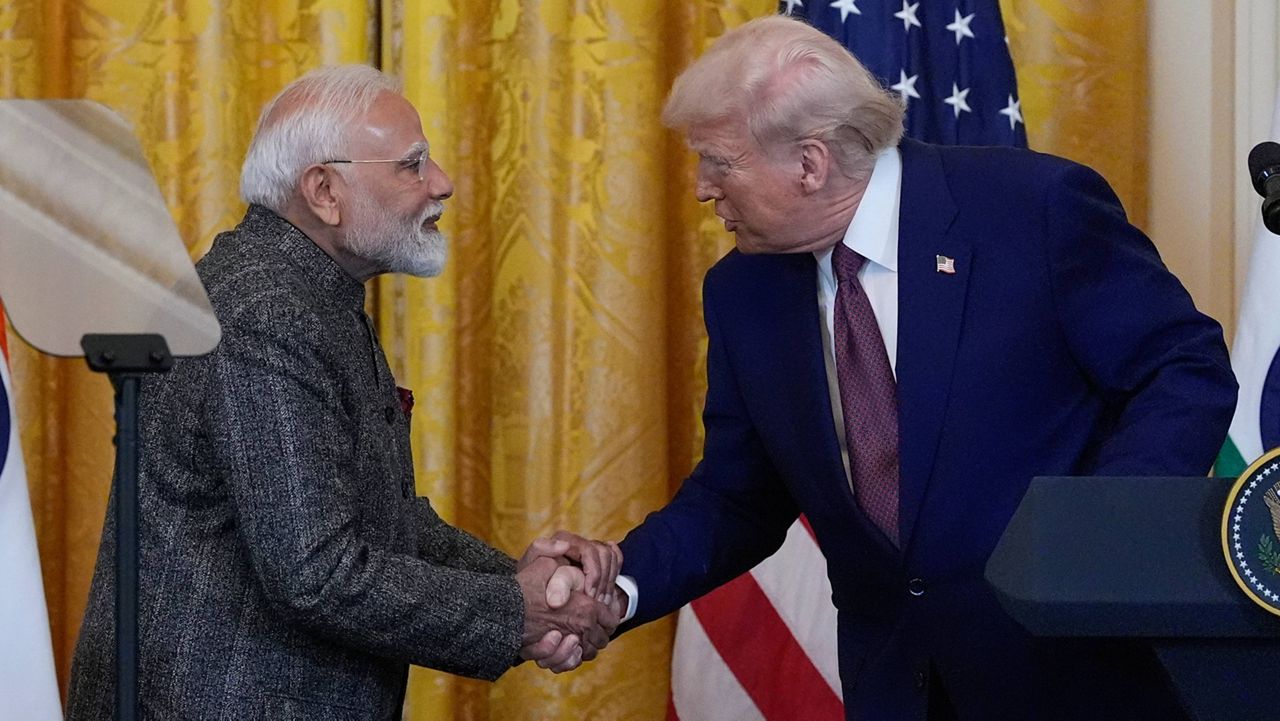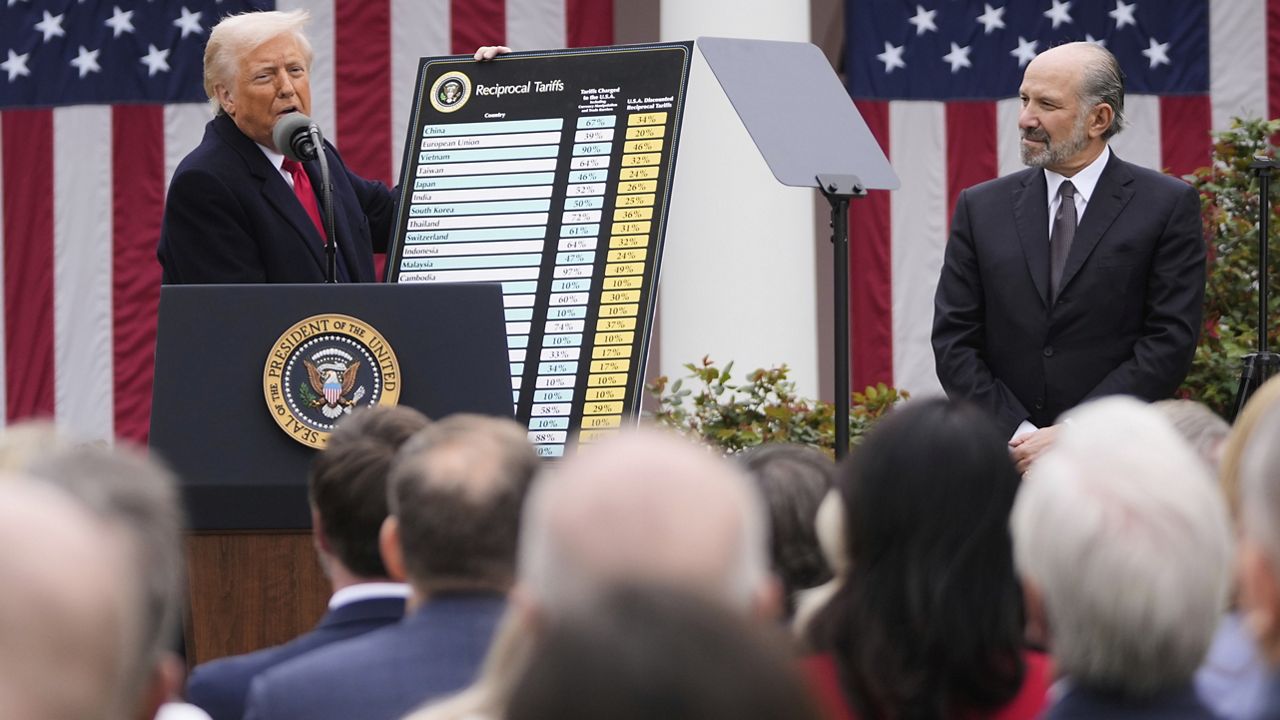When the 119th Congress convenes Friday to kick off a new session, the first order of business will be picking a speaker to lead the lower chamber — a task that in recent days is looking increasingly precarious.
Current House Speaker Mike Johnson, R-La., who has held the role since October 2023 when he took over for Kevin McCarthy after the former speaker’s historic ousting, is hoping to keep the lower chamber’s top job.
But it is not certain that his path to doing so will be smooth sailing, as some Republican House members are expressing resistance to another two years of Johnson’s leadership, particularly after his handling of a short-term funding bill to avert a government shutdown before the holidays last month.
For his part, Johnson on Thursday was optimistic, telling Fox News that he was “going to get this done” despite conceding that the GOP’s razor-thin majority in the chamber makes it “a numbers game.”
“I think we'll get it done, I really do,” Johnson said, adding he spoke to members over the holidays.
Here is what to expect on Friday as lawmakers return to Capitol Hill.
The 119th Congress is set to convene at noon Friday, at which point the Clerk of the House will preside over a roll call vote to elect a speaker. Members will individually shout out the name of the person they want to lead the chamber when their names are called.
If no single person receives a majority of votes based on lawmakers present and weighing in, then the process repeats, as it notably did for 15 rounds two years ago, the last time a new Congress convened.
The Constitution mandates that the House cannot conduct any other business until a speaker is chosen, including certifying President-elect Donald Trump’s 2024 election victory, which is set to take place Monday.
Republicans won 220 House seats in November's election to Democrats’ 215. One GOP member, however, former Florida Rep. Matt Gaetz, announced he will not return to the chamber, bringing the number of Republicans at the start of the new Congress to 219 and the total number of occupied seats to 434.
That means Johnson would need 218 votes to win the gavel if all members are present and voting for a person by name. If all Democrats are united behind their party leader, Minority Leader Hakeem Jeffries of New York, Johnson can only afford to lose one GOP vote.
The math gets more muddied if any members are not present on Friday, any Democrats vote for someone other than Jeffries, or any lawmakers abstain from voting for a candidate.
One House Republican, Rep. Thomas Massie, R-Ky, declared outright amid last month’s government funding fight that he will not support Johnson.
If Massie makes good on the pledge, any other GOP defection would block Johnson from the gavel. And several other Republican lawmakers, including Rep. Scott Perry of Pennsylvania, House Freedom Caucus Chair Rep. Andy Harris of Maryland; Rep. Victoria Spartz of Indiana and others, have made clear in recent days that they are still weighing their options.
Appearing on Fox Business earlier this week, Spartz said she was open to giving Johnson a “chance” but wanted to hear a plan as to how he will deliver Trump’s agenda, asserting that he “hasn’t been doing it.”
Despite referring to Johnson as a “good friend,” House Freedom Caucus member Rep. Chip Roy of Texas said flat-out this week that he does not believe the speaker has enough votes to clinch the gavel again Friday as things currently stand.
“I remain undecided as do a number of my colleagues,” Roy said on Fox Business.
This hesitancy from some in the GOP is despite the support of the most publicly influential figure in the party, Trump, who is set to assume the presidency again in just weeks.
The president-elect gave Johnson a major boost on Monday when he offered him his “Complete & Total Endorsement” in a post on his social media site Truth Social.
Trump expressed confidence in Johnson’s chances Tuesday, telling reporters at a New Year’s Eve event at his Florida club, Mar-a-Lago, that he thinks Johnson will have enough support.
“He’s the one that can win right now,” Trump said. “People like him. Almost everyone likes him.”
Trump added that other House Republicans are “very good, too,” but have too many people in the conference who don’t like them. Asked about calling reluctant members on Johnson’s behalf, Trump said, “If necessary.”
If Johnson does make it out of the vote with the gavel in hand, Republicans will face slightly more challenging odds at ousting him than they did with McCarthy.
In order to clinch the speakership in 2022, McCarthy had to agree to give just one member the power to trigger a vote to replace him, a scenario which ended up coming to fruition and leading to his ouster less than a year into the job.
The House rules package for the next Congress unveiled by GOP leaders Wednesday increases the number of lawmakers who can trigger such a vote from one to nine.
But the stipulation that all nine have to be from the majority party (the GOP in this case) has some Democrats inflamed.
“Their proposed changes would, for the first time in American history, shield the Speaker from accountability to the entire chamber by making it so that only Republicans can move to oust the speaker,” the top Democrat on the House Rules Committee, Jim McGovern, D-Mass., said in a statement Wednesday. “This makes it clear that they have no intention of working together to find common ground.”











